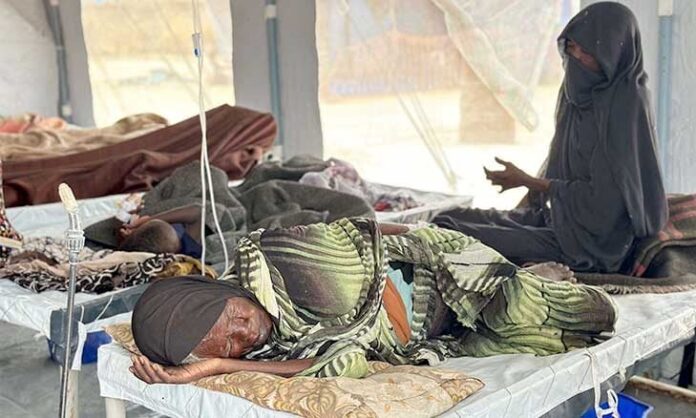The Khartoum Emergency Room has issued an urgent appeal to humanitarian organizations and government authorities, warning of an imminent health catastrophe threatening the Sudanese capital amidst environmental and health deterioration caused by the accumulation of waste and the worsening situation following the rainy season.
It stated that health facilities in Khartoum are witnessing an “unprecedented congestion” of cases infected with epidemic diseases such as malaria, dengue fever, and cholera, pointing out that the situation signals the collapse of the health system if the absence of an effective official response continues. It explained that the accumulation of garbage in the streets, in addition to stagnant water in large areas of the capital, directly contributed to the proliferation of disease vectors, foremost among them mosquitoes and flies, leading to a rapid increase in infection rates, especially in peripheral neighborhoods and under-served areas.
The Emergency Room called on local and international organizations, along with relevant government bodies, to intervene urgently to control the situation and “save what can be saved,” warning that delays in intervention could lead to a loss of control over the spread of waterborne and mosquito-borne diseases and wider fatalities.
It also appealed to Sudanese expatriates to assist in supporting mosquito control efforts by sending mosquito nets and preventive spraying medicines, amid a severe shortage of these supplies in local markets and a significant rise in their prices due to weakened supply chains.
Meanwhile, the Ministry of Health in Khartoum State announced that it carried out fogging operations in several neighborhoods of the capital to combat disease vectors as part of a limited emergency health plan.
Warning of Epidemic Diseases Outbreak During the Rainy Season
Despite these measures, the Emergency Room sees the government’s efforts as “still below the required level,” emphasizing the need for a comprehensive environmental and health intervention plan that includes waste removal, drying of swamps, provision of protective tools, and intensified community awareness.
This comes amid warnings that the continuation of the situation in this manner could lead to an increase in death rates, especially among children, the elderly, and those with chronic diseases, who cannot tolerate the effects of repeated infections or inappropriate medications.
This health crisis in Khartoum emerges while Sudan is experiencing a tragic situation on multiple levels due to the consequences of floods and rains and the ongoing war between the Sudanese army and the Rapid Support Forces, which have killed thousands of civilians, displaced millions, and caused the collapse of basic services in several states.
International relief organizations have previously warned in reports of the possible widespread outbreak of epidemics in Sudan due to the absence of sewage systems, deterioration of infrastructure, collapse of the general health system, and the lack of essential resources to face crises.
In this context, the Khartoum local Emergency Room has also called for a comprehensive national action to confront the disaster before it spirals out of control, warning that “the coming days may bring worse if the state, civil society, and organizations do not act to save the lives of thousands of citizens threatened by epidemic diseases.” It stressed that “prevention is the first line of defense,” urging citizens to follow known health procedures such as covering water containers, avoiding the accumulation of stagnant water, and using personal protection means like mosquito nets and household insecticides until an effective official response is available.


